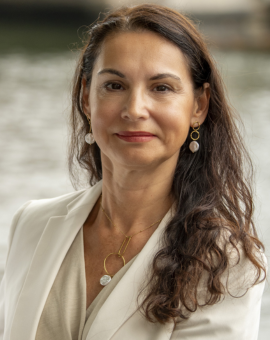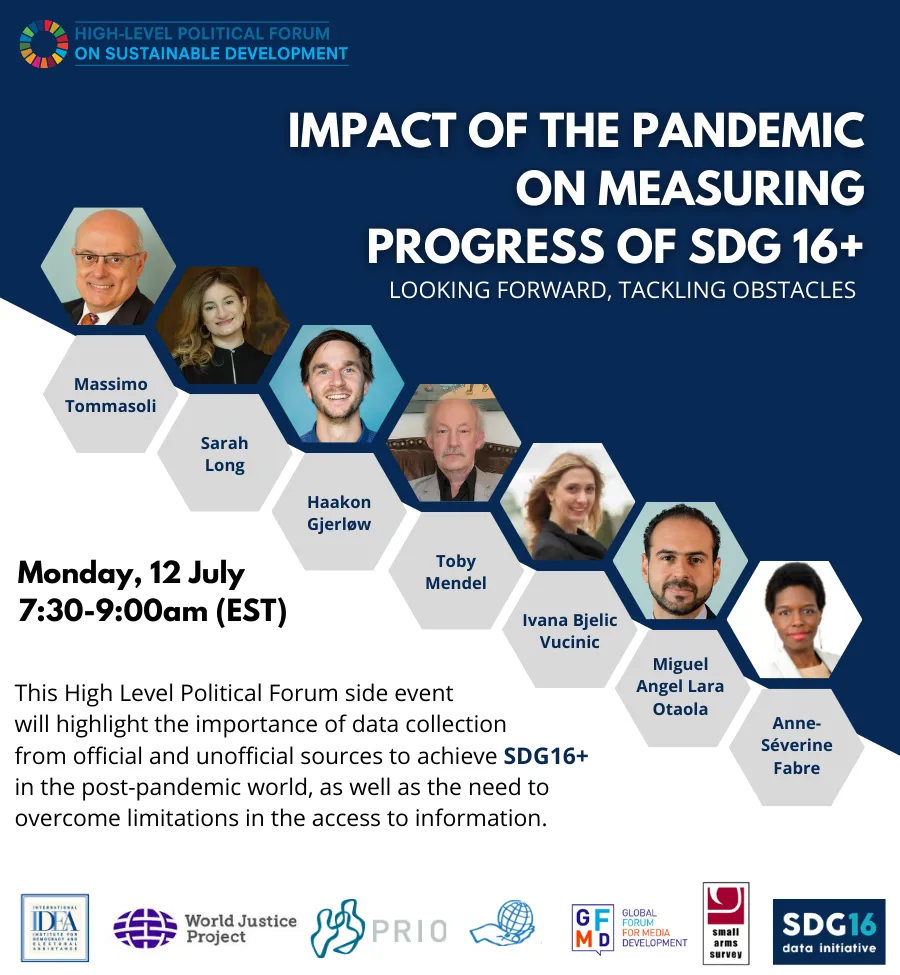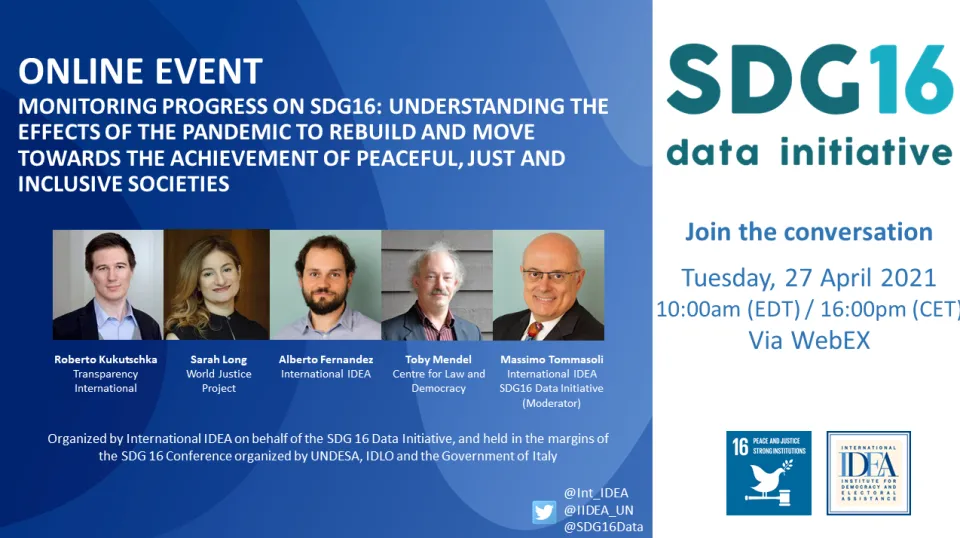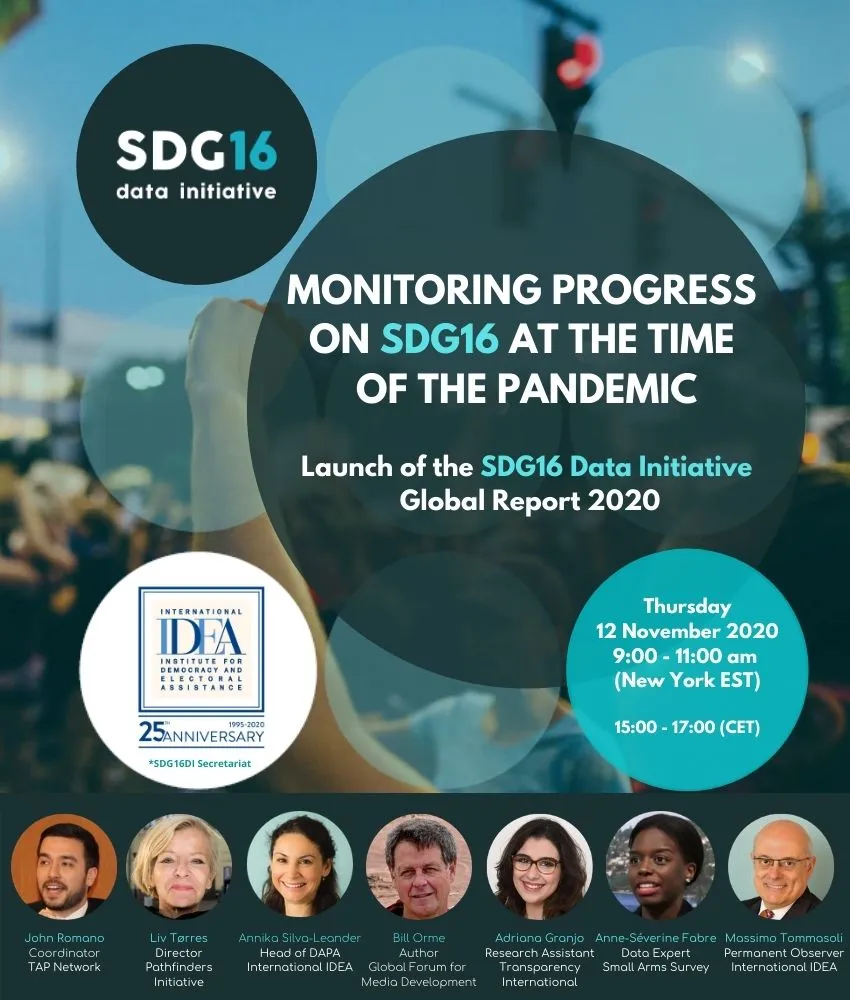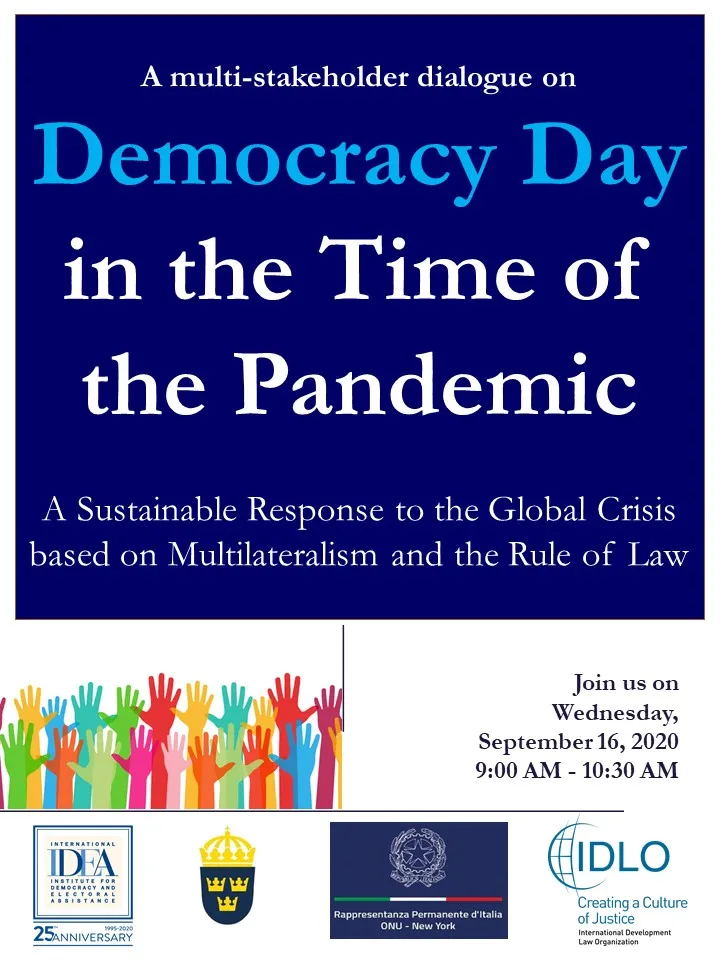Accelerating SDG16+: Innovative Action & Partnerships to deliver on the 2030 Agenda
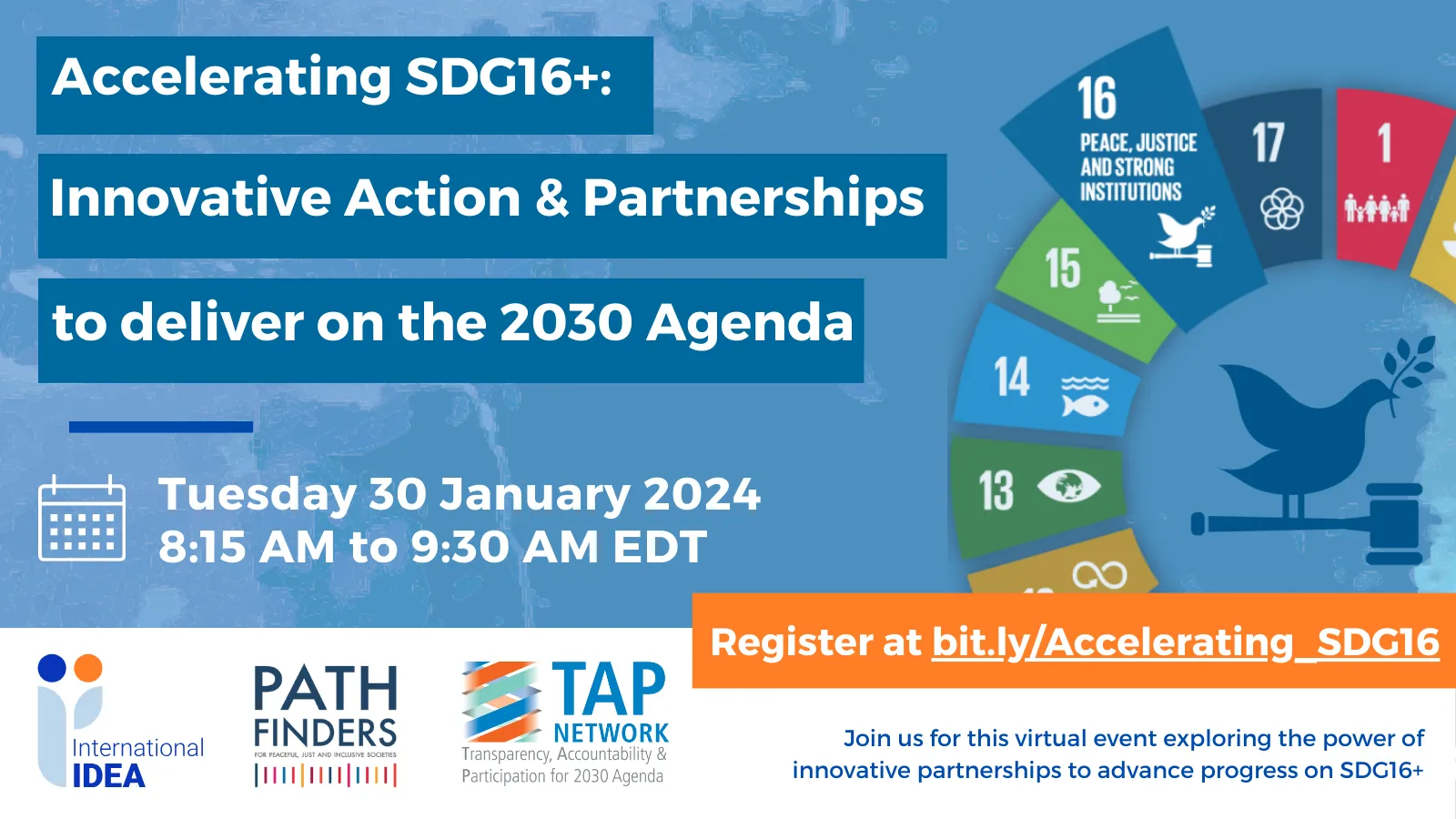
Now in the second half of the 2030 Agenda’s implementation, the international community must come together and act on realizing more peaceful, just and inclusive societies (SDG16+), as a catalyst for progress across the 2030 Agenda and as a means of addressing continuous global crises driving breakdowns in trust at all levels. With most of SDG16’s targets off track or backsliding, it is critical to harness the power of innovative partnerships and collaborative action to amplify results, scale interlinkages between SDG16 and other SDGs, and build resilience against future crises.
In recognition of the transformative power of partnerships and collective action, this event—hosted by the Pathfinders, the TAP Network and International IDEA, will highlight innovative partnerships and policy solutions that practically advance SDG16+ and its interlinkages across the SDGs, including on climate and poverty, with a focus on national and subnational levels. To this end, the event will also emphasize the need for a multi-stakeholder approach, innovative financing, and improved data to better understand trade-offs and measure results. Progress is being made, and there are inspiring and practical examples of collaborative and sustained action on SDG16+ and its interlinkages to harness. In a year critical for multilateralism and for the 2030 Agenda, this event will draw from various stakeholders to highlight best practices in the lead-up to HLPF, while touching upon links to the Summit of the Future.
The Event's format
The event will feature speakers from across the SDG16+ space and from within the Global SGD16+ Coalition. It will also include an interactive dialogue with participants, including through the use of presentation tools such as Mentimeter, to ensure that audience insights are captured and used towards collective energy and action on issues central to SDG16+ through the 2030 Agenda and beyond. Anticipated speakers include diverse Member State representatives (including at the ministerial level), civil society organizations, local authorities, and UN entities.
Speakers
